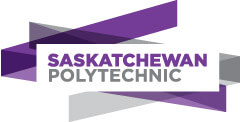About Graphic Communications Diploma in Saskatchewan Polytechnic
Program Overview
Innovative. Idea-driven. Important. Graphic communications revolutionized society with the printing press. Now it’s leading a new revolution into the digital age. It’s an industry of team players who combine artistic, technical, and entrepreneurial talents to get the job done. It could be the career for you.
Saskatchewan Polytechnic's Graphic Communications diploma program will challenge you both creatively and technically. Our training ensures you meet national skills standards set out by the Canadian Printing Industries Sector Council. You’ll graduate with the kind of practical, hands-on skills you need to succeed—in both traditional and digital printing environments, as well as publishing, advertising, design, and communications.
Graphics Communications is a two-year diploma program offered full-time at Saskatchewan Polytechnic Regina campus. Come here to develop practical, hands-on skills in electronic file management, industry-standard software applications, and print management, production, and administration. This includes training in:
- colour copier operation
- colour theory and colour management
- design and typography
- digital photography
- hydraulic cutter operation and maintenance
- image editing and page layout
- industry-standard software and hardware systems
- logos, graphs, vector graphics, PDF creation
- mixing inks
- preflighting, proofing and output methods
- screen printing
- sheetfed offset press operation and maintenance
- wide-format printing
- vinyl decal/sticker creation
Learn by Doing
- You’ll learn about leading software applications by using them in your classes and labs.
- You’ll learn about printing by operating Saskatchewan Polytechnic’s in-house pre-press equipment, vinyl cutter, screen printing system and offset press.
Ready to Work
At graduation, you’ll have developed a professional portfolio, completed a four-week work experience and have experience managing and producing a “live job” from concept through delivery.
Career and Salary Information
Your Career
Graphic Communications graduates are working in many different areas—advertising agencies, graphic design firms, electronic pre-press studios, sign shops, commercial and quick-print shops, newspaper, magazine and book publishers, in-house marketing departments, and government communications departments.
Look for entry level jobs in design, production art, packaging design, signage, image editing, bindery and finishing, digital print operation, print production planning, management, screen printing and press operations, branding and marketing.
For more information, contact the Student Employment Services at a campus nearest you.
Academic qualification equivalents:
- Grade 12 with a minimum 60% in each of the following subjects: English Language Arts A30, English Language Arts B30, Chemistry 30 and Pre-Calculus 30
English language requirements (one of the below):
- IELTS : Overall minimum score of Band 6.5 with a minimum score of 5.0 in each component.
- TOEFL : An overall minimum score of 81 on the Internet-based Test of English
- PTE : A minimum score of 63 with minimum component scores of 50.
Saskatchewan Polytechnic Highlights
| Type |
Public |
| Campus Setting |
Urban |
| Application mode |
Online and Paper mode available |
| Graduation rate |
62% |
| Acceptance rate |
96% |
| Number of Students |
16,008 |
| Overall cost of living |
14,762 CAD |
| Academic calendar |
Semester based |
| % of International students |
6% |
| Number of campuses |
4 |
| Medium of instructions |
English |
| Undergraduate Tuition fee |
14,044 CAD |
| Postgraduate Tuition fee |
16,426 CAD |
| Cost of living |
694 -1147 CAD per month |
Saskatchewan Polytechnic First-Year Tuition Fees And Living Expenses For International Students
Over the course of one academic year, the following graph displays tuition and living expense estimates in Canadian currency for one full-time international undergraduate student. Please bear in mind that these are only estimates; actual pricing will vary depending on your needs and preferences. Other factors to consider include currency changes, visa and study authorization fees, and vacations back home.
- For international students, the overall fees will range from:-
| Particulars |
Amount |
| Administrative fees |
50.00 to 150.00 CAD |
| Application fees |
150 CAD |
| Student association fee |
95.00 to 445.00 CAD |
| Non-refundable fee at the start) |
1,000 CAD |
| Tuition fee range |
6,195 to 18,089 CAD |
| Laboratory fee |
100.00 to 409.00 CAD with no fees for
some courses which do not have a lab service. |
| Books and Supplies |
200 to 3,725 CAD |
| Technology fee |
50 to 146 CAD |
- For a student of Saskatchewan Polytechnic the required financials (Cost of Attendance) can be:-
| Description of Financials |
Amount in CAD |
| Average cost of tuition |
11245.77 CAD |
| Cost of living |
10799.39 CAD |
| Application fee |
150 CAD |
| Estimated total (per year) |
22,195.16 CAD |
